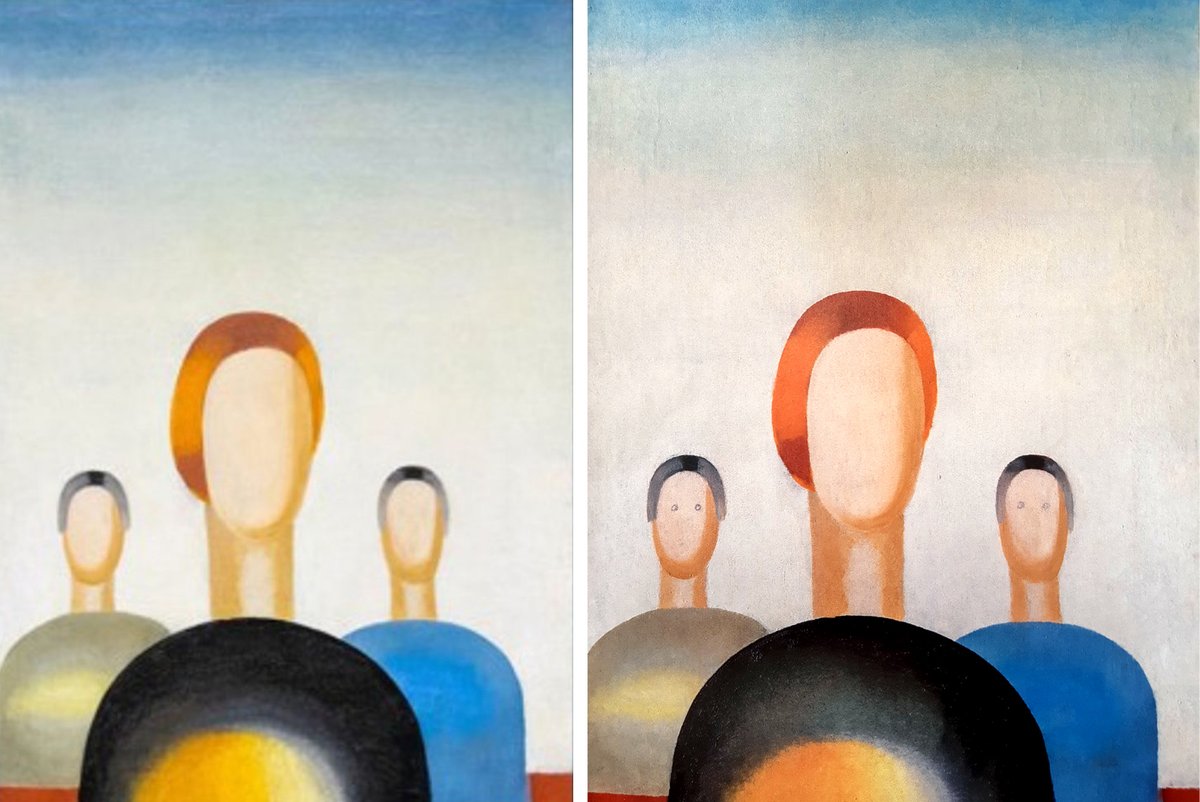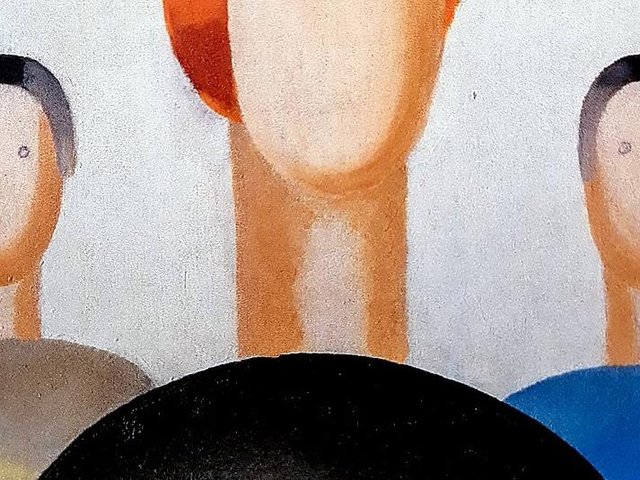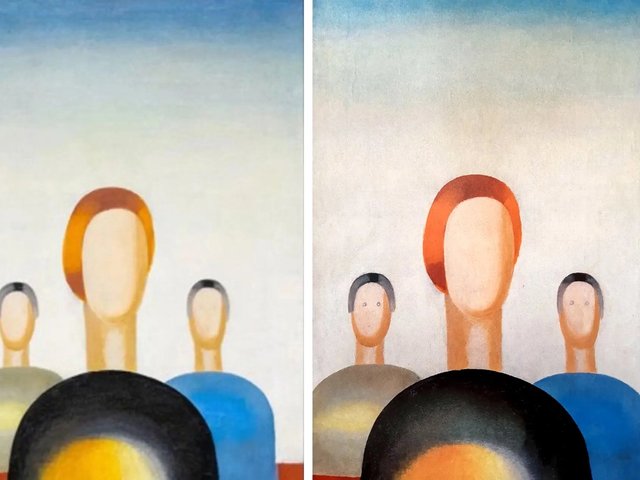A security guard who is charged with drawing eyes on an avant-garde painting by Anna Leporskaya at the Yeltsin Centre in Ekaterinburg last December was identified in a local media interview on Friday as Aleksandr Vasiliev, an injured veteran of the Afghan and Chechen wars. In a remorseful confession, he told Elena Pankratieva, a journalist for the Russian news site E1, that he thought the faceless image was a “childrens’ drawing” that teenagers visiting the exhibition asked him to improve upon.
“I’m a fool, what have I done!,” the 63-year-old told the online publication, which noted that while the incident had been described humorously, “the conversation turned out to be not at all funny”.
Vasiliev explained how fellow veterans had helped get him the job at the gallery despite his many war injuries. He recalled that during the First Chechen War in 1995 only four men out of his squadron of 36 survived and doctors in Moscow called him “a goner” due to serious head and lung injuries and bullet wounds across his body. He was awarded a medal for courage in the Chechen war.
Пририсовавший глаза к картине ученицы Малевича охранник объяснил поступок Бывший охранник екатеринбургского...
Posted by Мировые новости on Friday, February 11, 2022
“A concussion affected his psychological and emotional health,” according to E1, although he managed to work as a security guard for years at various locations, most recently a bank. But his travails continued. His wife died and in 2014 his only son was stabbed to death in the street. He says he was not sure he would be able to handle the job at the Yeltsin Centre and was not impressed by the exhibition, nor by Leporskaya’s work on loan from the State Tretyakov Gallery in Moscow.
“At first I wanted to refuse, I was afraid that I would not be able to be on my feet all day, without the opportunity to sit down,” he explained, because of his severe leg injuries. “But they told me: if you work one shift, we will pay you right away. I went to work. To be honest, I didn't really like these works [at the exhibition]. They left a bad impression. I tried to pass by without looking. I watched how people were reacting, and saw: 16-17 year-old kids are standing, discussing why there are no eyes, no mouth, no beauty! There were girls in the group, and they asked me: 'Draw eyes, you work here.' I asked them: 'Are these your works?' They said: 'Yes.' They gave me a pen. I drew the eyes. I thought it was just their childhood drawings!”
Vasiliev told E1 that he had no idea that he had done anything wrong. Other museum visitors walked by smiling. He started feeling bad from standing and asked to go home. At first he could not understand the charges against him when the police came to him several days later, and he offered to “erase everything so it’s not visible”. The article further asserts that the teenagers who allegedly goaded him on did not end up in the security camera footage.
Vasiliev says that he would never have damaged the work if he had known that “the paintings were brought from Moscow and are so expensive”. His wife, who he met three years ago, told E1 that he is “absolutely normal in daily life” but in some things “is naive as a child”, attributing his actions to his concussion and his overwhelming desire not to stay at home. “He really wanted to work,” she said. “I think that this is a tragedy of part of his generation. There are many people like him who have lost their health, who have been dumped on the sidelines of life.”
The city of Ekaterinburg has a complicated history. The former tsar Nicholas II and his family were murdered there in 1918. In the early Soviet days it was a centre for constructivist architecture. The former Russian president Boris Yeltsin started his path to national power there in the late Soviet era. The city is a military-industrial hub with many Afghan and Chechen war veterans. Today it is known as a centre of Russian contemporary art, home of the Ural Industrial Biennal.
At the same time, the vandalisation of the Leporskaya painting has unleashed Soviet-style disdain for avant-garde art.
After the Leporskaya defacement, Boris Yakemenko, a former pro-Kremlin youth ideologist, described avant-garde artists as parasites and cowards who exploit the idea of “artistic radical gesture” in a post on the instant messaging service Telegram. The security guard’s actions, he wrote, are an example “of a radical gesture hitting back at its creators according to 'law of the boomerang'”.





